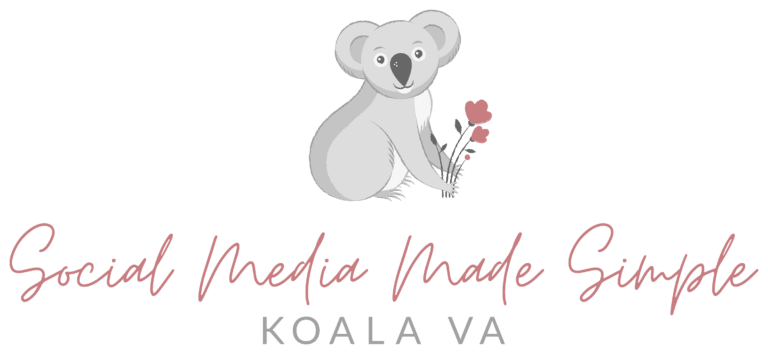As a therapist, you’re an expert at guiding others through the challenges and blockers they’re facing. But when it comes to social media, even the best can hit mental roadblocks!

Let’s tackle these together, with a deeper look and some practical reframes for the 3 most common mindset blockers clients come to me with:
1. You don’t want to be seen as ‘salesy’
Many therapists feel conflicted about promoting their services on social media.
This discomfort often stems from a fear of being perceived as money-driven, rather than care-focused.
However, reframing this fear is crucial if you’re going to use social media to grow your practice.
Think of it like this:
Your services provide significant value and potential healing, so by not actively sharing what you offer, people who are actively seeking the help you can offer them could be missing out on it!
It’s important to remember that your social media content only reaches a fraction of your audience due to how social media platforms work.
Therefore, regular sharing of your services isn’t pushy; it’s necessary for visibility.
Not only that, but promotional content doesn’t even have to be blatant – and it certainly doesn’t need to be intrusive. In fact, you can weave your offerings into valuable, informative posts just by adding a clear call-to-action to get in touch or visit your website to book.
This simple approach ensures your promotional content feels natural and integrated, not forced or overly commercial.
2. You’re worried people will see you’re not perfect
Perfectionism is a common trap for therapists on social media, where there’s a tendency to wait for everything to be flawless before posting.
But in reality, striving for perfection can hinder both your progress and authenticity.
Here’s what you need to remember:
Your audience is drawn to genuine, relatable content, not unattainable perfection.
A post you actually post – even if it’s not perfect – is far more valuable than to you audience (and business goals) than one that’s stuck in your head or drafts.
It’s about embracing the human element – your audience appreciates seeing the person behind the therapist. This authenticity helps to build a deeper connection and trust.
So, give yourself permission to make ‘messy progress’. Each imperfect post is a step towards growth and engagement, and often these more ‘real’ posts resonate more deeply with your audience.
3. You feel like everything you could say has been said (better) by someone else already
It’s a common feeling among therapists that every topic has already been covered (or covered better) by someone else. But, this overlooks the unique value of your individual perspective.
So let’s reframe this blocker in two parts:
Firstly, your experiences, insights, and personal touch bring a fresh angle to even the most discussed topics. Every post you make is an opportunity to present familiar information in a new light – one that reflects your personal journey and professional wisdom. Because your audience follows you for your voice, not just the information you provide.
Embracing your uniqueness in content creation is not just about sharing information; it’s about sharing a part of yourself. Your unique perspective is what makes your content valuable and distinct from others in your field.
And secondly, we’re living in an age of Google and ChatGPT. So the truth is that 99.9% of pretty much everything has been said before. (And wouldn’t it be weird if we decided to just stop talking about stuff because of that?!)
That means that if someone wants to spend time seeking out the information then not only will they find it, but they’ll be finding it because someone else shared it – possibly another therapist! Why shouldn’t you have been the one to give it to them?
Social media is about authenticity, consistency, and bringing your unique perspective. You’ve got this, and I’m cheering you on!
Need some extra help with your social media mindset? Book an Empower Hour with me.
